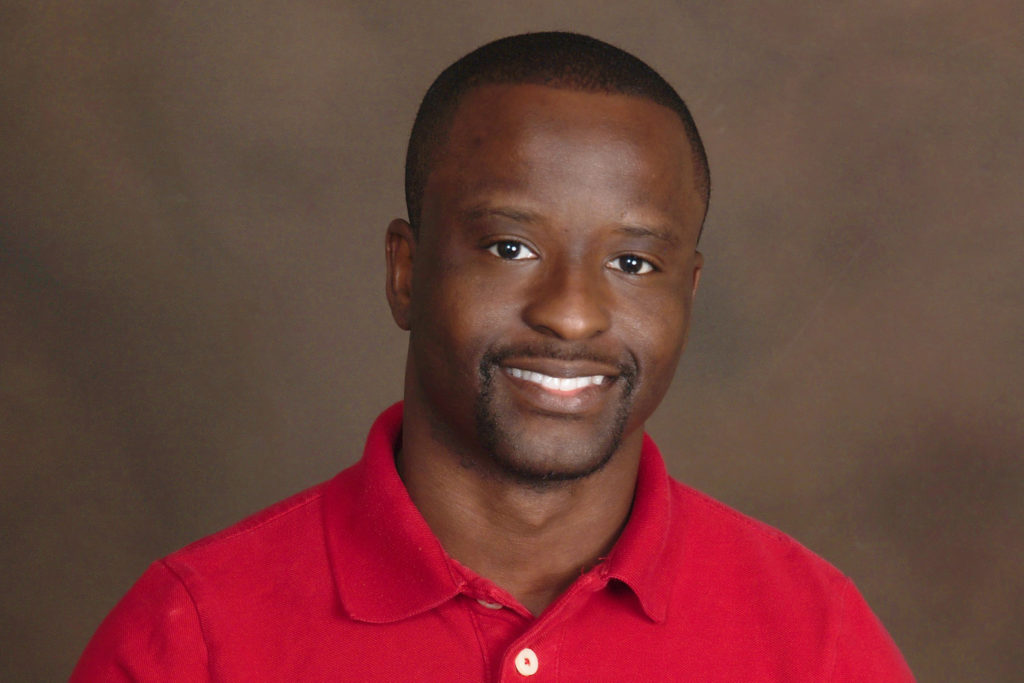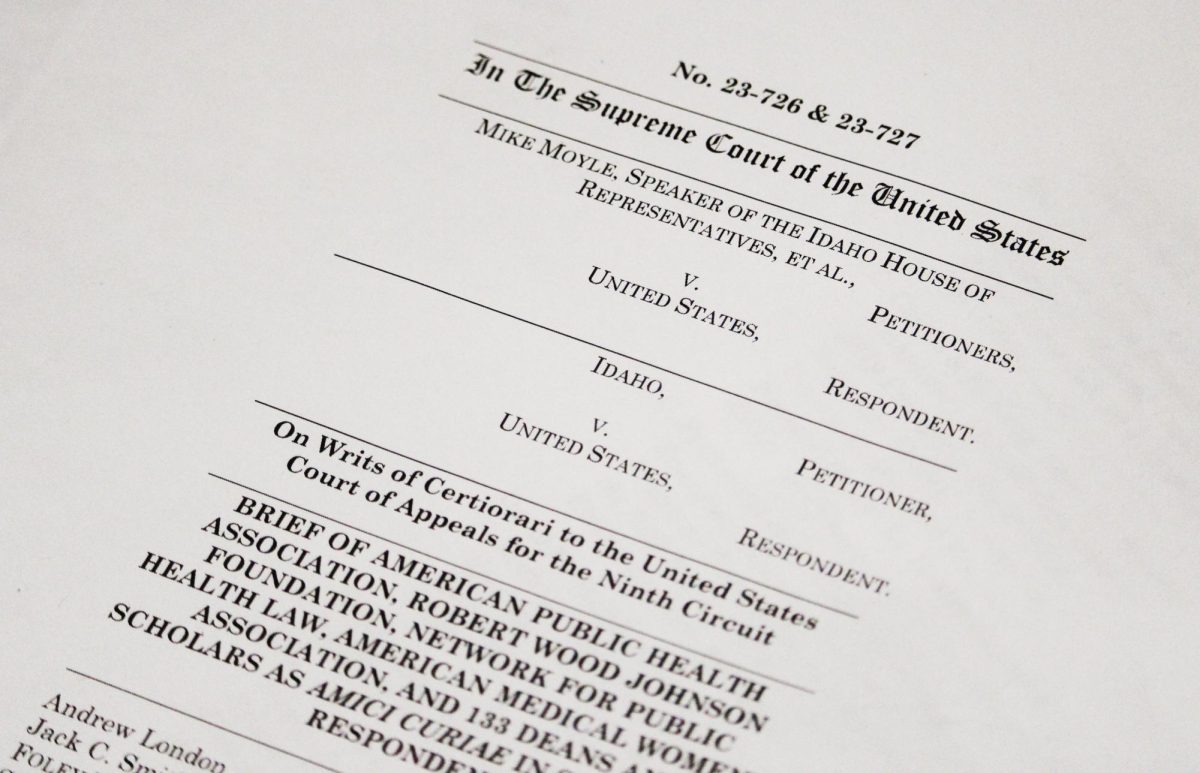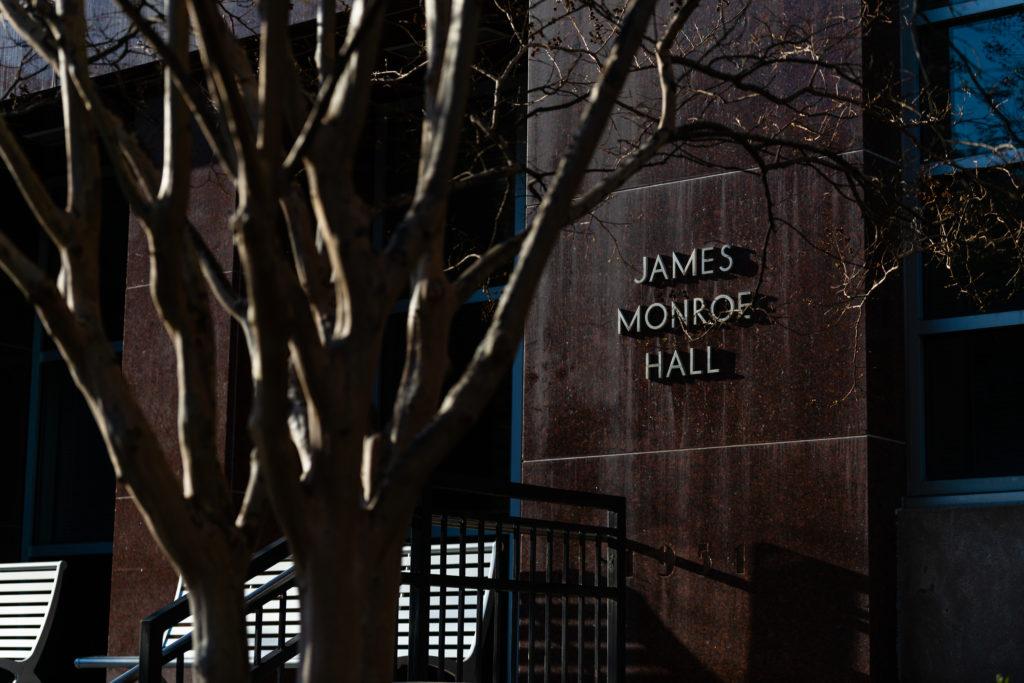This story is part of The Hatchet’s semester-long project sharing stories of GW’s faculty members at the forefront of researching the COVID-19 pandemic.
A sociology professor partnered with a global team of more than 100 interdisciplinary researchers to investigate the perceived risk factors of the novel coronavirus and their impact on stress.
Antwan Jones, an associate professor of sociology and epidemiology, said his research project looks at how likely an individual is to be infected with the virus and the economic burdens caused by the pandemic and their ties to health-promoting and health-damaging behaviors. He said the ongoing project, which began in June, can help identify common stressors, like the anxiety about contracting COVID-19, that people around the globe face and how they impact their physical health habits.
“As a sociologist and epidemiologist, I have been searching for ways to understand the social, psychological and structural dimensions of the pandemic,” he said in an email.
He said the research relies on data from his collaboration with the PsyCorona project, a multinational, longitudinal study of behavioral and psychological responses to the COVID-19 pandemic, and uses data from 24 countries.
Jones said participants complete a survey asking about their likelihood of contracting COVID-19 and their economic burdens. He said researchers then follow up with participants about their specific economic situations throughout the pandemic.
He added that he hopes to identify the effects of the stressors participants experience throughout the pandemic on their health.
“Perceived risk was measured by the question, ‘How likely is it that you will get infected with coronavirus in the next few months?’ while economic burden was measured by a similar question – ‘How likely is it that your personal situation will get worse due to the economic consequences of coronavirus in the next few months?”’ he said.
He said about 60,000 people completed the initial questionnaire and were divided into half longitudinal panels, where respondents were interviewed multiple times, and cross-sectional panels, where respondents were only interviewed once to be mindful of participants’ time and energy.
“Stress is a key element to physical and mental well-being, but pandemic-related stressors need to be researched so that interventions specific to pandemics can be implemented to help those individuals who are suffering,” he said. “And those interventions will be insufficient if the context of COVID-19 is not properly addressed. That is why this research is so important to do.”
Jones said the team members are close to completing their paper, showcasing the results of the study, and will submit it to “Annals of Behavioral Medicine.”
He said he decided to get involved in the project after identifying a need for a new line of research to address sociological, psychological and epidemiological aspects of the pandemic. People have reported feeling depressed and anxious and struggling with insomnia since the pandemic began last year.
Jones said as he saw the stress of his friends and family grow as they lost loved ones and worried about their health, jobs and the unknown, he recognized the need for this project.
“It was a great marriage between what I and others have personally felt and experienced during the pandemic and the skill sets and interdisciplinary lens that I bring to all research endeavors,” he said. “It no longer felt like chasing a story but more like supplying the world with evidence to help in the recovery, post-pandemic.”
Jones said conducting his research became a way for him to deal with his own stress and sadness about the pandemic.
“Doing work on perceived COVID risk was personal to me,” Jones said. “Like many of us, I was sandwiched between two emotional states: one of perpetual worry that I would acquire COVID-19 and the other of intermittent sadness thinking that others may die from the disease.”
Jones added that he co-runs a website designed to examine the social impact of the pandemic and bring attention to the inequities surrounding it. He said the panel is ongoing, and anyone who wants to participate in the research can still sign up.
“The volunteer work that I have done to make sure that one less person is exposed to COVID-19 is also my way of using my talents to help us all get to our place of ‘new normal,’” he said.







